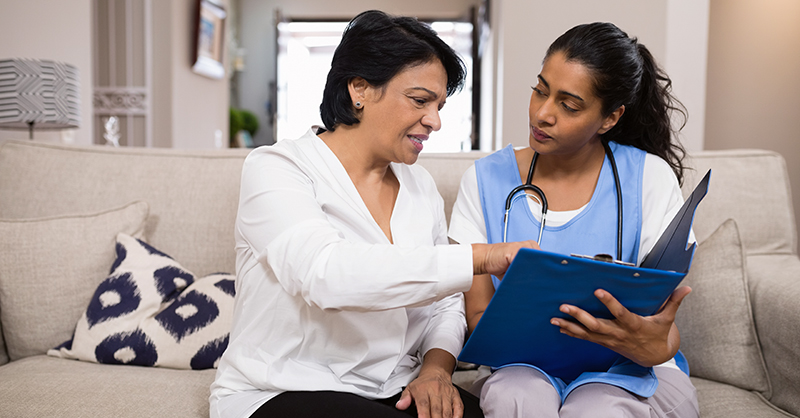Ayúdame. Aidez-moi. Me ajude. Ede mwen. If you speak more than one language, you are prepared to better understand the many ways that patients ask for their health care provider’s help. Being multilingual can give you an edge when it comes to making caring your career.

According to the most recent data from the United States Census Bureau, over 20 percent of people in the U.S. speak a language other than English in their homes. This means about one in five people were raised bilingual, which can give those in this group a professional edge.
Not speaking their patients’ languages can be a barrier for allopathic physicians and other health care professionals as they try to connect and build a rapport with their patients. When trying to share important information like the specifics of prescriptions or diet plans, their advice might get lost in translation.
The Value of Speaking Your Community’s Language
Victoria Donascimento, a family medicine doctoral student at UMass Medical School, speaks English, Spanish, Portuguese and Haitian Creole — all languages that help her communicate with her community. “I have been able to help many physicians and nurses when interpreters have not been available,” Donascimento says. “I am also able to interview patients more independently, which provides me with more clinical opportunities. I think that I will be a stronger candidate for residency programs that care for diverse populations, since hiring me will actually save them time and money.”
An article from the David Geffen School of Medicine at UCLA mentions that a key part of practicing medicine is being able to communicate with patients and their family members. When patients and their families develop a connection with their physicians, they are able to speak openly. Donascimento adds, “[Being multilingual] establishes better rapport between patients and providers, which leads to better patient care, compliance and follow-up.”
When a health care professional can understand their patient’s questions and concerns, they can mitigate their confusion and truly understand what help they seek. Health care IT specialist Manjusha Punugu speaks to that understanding: “I did see that a lot of times when patients came in to get checked up, some of the questions would not be understood. Such as the quality of the pain, as in if it’s sharp or dull. To collect that information, it was helpful to be able to translate it into multiple questions.”
Punugu, who speaks English, Telugu and Japanese, found being multilingual especially valuable when she volunteered at a free clinic in a Hindu temple. “I was able to speak to multiple people in their mother tongue. I could get information that would otherwise be lost because they are not able to describe it in English.”
There’s a Health Care Career for That
So what happens if a hospital does not have enough multilingual doctors or nurses on staff? They can call in a health care interpreter. This health care professional facilitates communication between patients with Limited English Proficiency (LEP) and the Deaf and Hard of Hearing and their physicians, nurses, lab technicians and other health care providers.

Most health care interpreters are responsible for providing face-to-face interpreting between patients and providers. However, interpreters may also be asked to work with other individuals, such as family members or a patient representative, and they can help provide cultural information to facilitate support for a treatment plan.
Being multilingual provides more than just benefits for your patients and their treatment. According to NPR, it can also help you outperform your peers who speak only one language. The article goes on to say that “[bilinguals] can pay focused attention without being distracted and also improve in the ability to switch from one task to another.”
If you have multilingual skills, consider using them in health care. Your understanding may just help you save a life!
